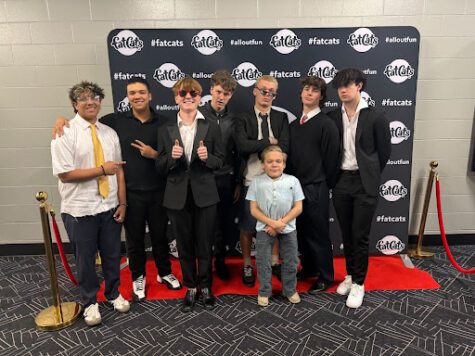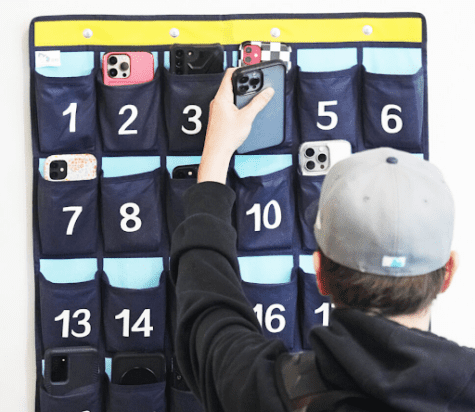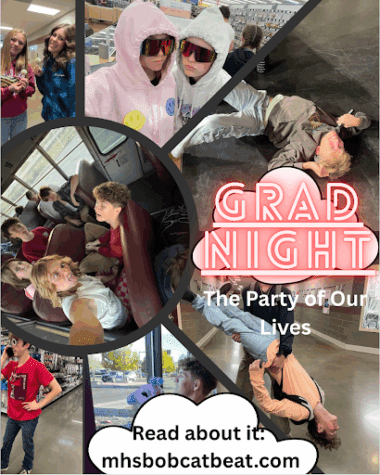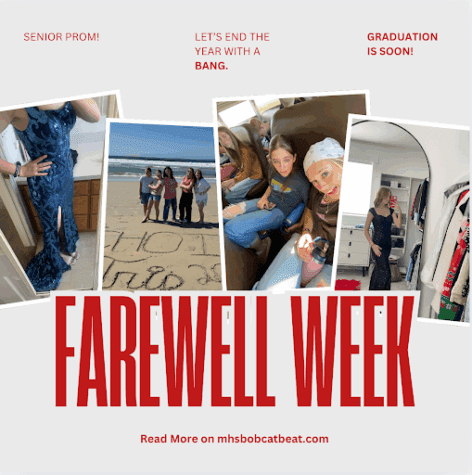Teacher Appreciation and Advice for Seniors
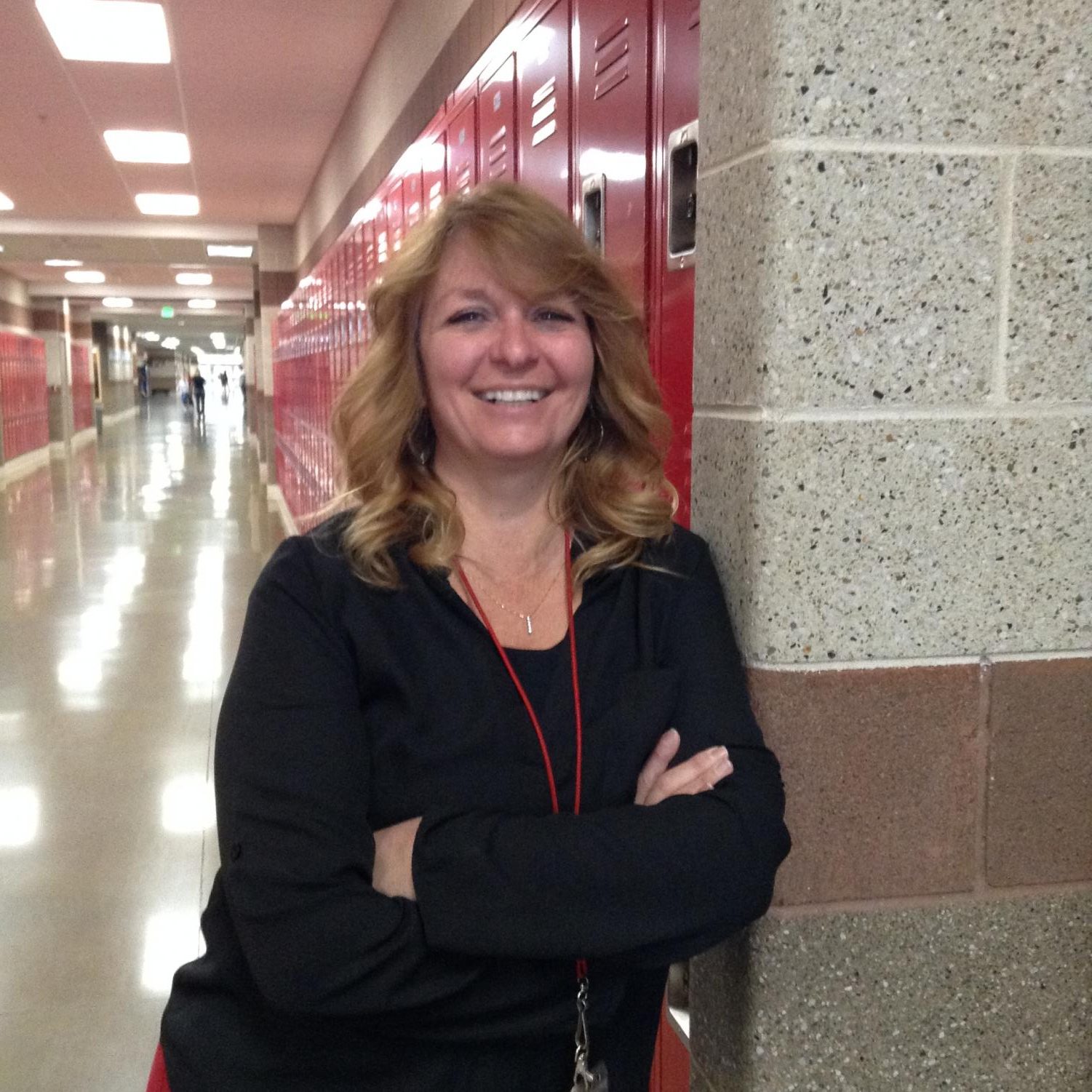
"“Don’t quit until the finish line, it’s right there, don’t quit, don’t get lazy, run to the finish line because this is easy compared to what’s coming after.”
How many years have you been teaching?
“33 years,” Government teacher Mrs. Woolf said.
“27 years,” Government teacher Mr. Reeser said.
“32 years,” Band teacher Mr. North said.
“29 years,” Drama teacher Mr. Hibbard said.
“3 years,” English teacher Mr Forbes.
“This is my 7th,” English teacher Mrs. Miller.
“5 or 6 years here at Madison. Before that I taught for a couple years at Pleasant Grove High School,” Business teacher Mrs. Barzee said.
Favorite part about teaching?
“Getting to know the students. I have a real passion for government so getting to know them and sharing my passion [is my favorite],” Woolf said.
“I love the subject matter, I know that it’s all supposed to be about the kids, but I loved the subject matter first. I love helping other people love it too, helping other people understand it too. That’s the best part. If I was just a historian or just a researcher, I don’t think it would be as fun. I don’t think it would be as exciting because I’m not helping other people catch the vision or I’m at least not seeing it. So that is what I like best about teaching; introducing somebody to something that I love and hopefully getting them to at least appreciate it too,” Reeser said.
“Concerts,” North said.
“Interaction with students,” Hibbard said.
“Watching the kids grow and progress in their lives,” Forbes said.
“When the students get excited about the subject matter,” Miller said.
“I love the students. I love the topics and the variety of topics I get to teach and how applicable they are to everyday life,” Barzee said.
Why did you want to be a teacher?
“Because of my passion of government and I wanted to share it with others. I was always excited about it and I thought it would be a good job to both be a mom and be able to [share my] political science passion to my students, without having to go into a career [where I would] have to be away from my children a lot. It was a good way to still do government and be with my children,” Woolf said.
“I think it’s the subject matter. It’s because it’s what I loved, even in High school. I was going to be something else. I was pre-pharmacie for a while until the math and chemistry got too hard. I wanted to be a teacher because it was my way of staying connected to and being involved in the subject matter and I do like the kids, the kids are great, but again it’s [that] I love the subject matter,” Reeser said.
“I loved the feeling of helping people find their voice. [Helping them] find something they are good at and passionate about and [I love] just working with music,” North said.
“There is lots of teachers in my family and they all enjoyed the profession, so I thought I would,” Hibbard said.
“Because I had a professor in college that really changed my life, when it came to reading and writing. It was never my original career path, but after that class, I realized just how important reading and writing was and how it could help you figure out who you wanted to be in life and I wanted to give that opportunity to other people,” Forbes said.
“I felt like people were so impatient with teenagers and they need teachers who just enjoyed being with them,” Miller said.
“While I was at college, I like all the business subjects and I realized that when I was in High school those were some of my favorite classes. [Then] I thought “maybe I could teach all of these business subjects, just like the teacher I had who made a difference for me” and it just kind of fell into place. Until halfway through [college], I thought I was just a business major and I didn’t realize that I wanted to be a business teacher,” Barzee said.
When did you decide to be a teacher?
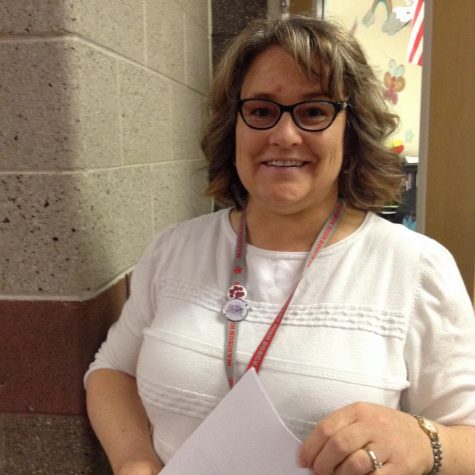
“It was in my Senior year of college that I decided to be a teacher. I [originally] thought I was going to be a lawyer, but it didn’t turn out that way and [teaching] was a way that I could still share my political science and my passion, [while still being] able to have children,” Woolf said.
“About a year and a half into college, that is when I switched my major and realized that [I wanted to be a teacher],” Reeser said.
“I was in 8th grade and I had a wonderful Creative Writing teacher and he did a lot for me. [Then was when] I realized I wanted to do that for other people. Then music came along. When I was in High School I decided I wanted to be a music teacher,” North said.
“[In] 1986, [33 years ago],” Hibbard said.
“Towards the end of my 2nd year of college,” Forbes said.
“I decided to be an elementary teacher when I was young and then [I] changed my mind and wanted to teach high school when I went back to school, when I was 40,” Miller said.
“While I was at college. I bet I was like 22,” Barzee said.
What do you find most frustrating about teaching?
“Basically all the policies and rules that stop teachers from teaching outside of the norm. Like my smarties trial, everytime I get a new administrator I have to go through the convincing that “it’s okay, we can do this, until they understand it” Just the unconventional ways of teaching is discouraged sometimes. That is the frustrating part, just [not] being able to do what we feel is good,” Woolf said.
“Administrative stuff. You come up with the greatest ideas and then you have to grade all of it. [Then there are the] Other things [that] are outside of my control. Those are the most frustrating things. It is nice in school at the very least everyday I get to close that door and do what I do best and that’s being in here with my students, focusing on the stuff we need to learn, that is what I love most. It is the other stuff that I can’t control that kind of drive me bonkers, but you kind of have to let that slide because you can’t control it,” Reeser said.
“The students who try to make an excuse for everything and then the parents that try to back them up [by] not doing their job of being responsible,” North said.
“All of the interruptions to class time,” Hibbard said.
“Parents, dealing with parents that get upset that their kids have less than an A,” Forbes said.
“Senioritis, hands down,” Miller said.
“I feel like there is not enough time in the day, not enough time in the hour or [the] lack [of] motivation [from] teachers and students. [To combat the frustration] I just say “Okay. Tomorrow will be a different day,” Barzee said.
What were you like as a student?
“I always tell my students, I was a nerd. I was a debater, I did student council, I did lots of sports so I was really busy. Teachers probably thought that I should focus more because I was so spread out, but I got my work done. I was probably a little argumentative. My mother would say I was rebellious, but I think I was just right,” Woolf said.
“I was a pretty good student I think, especially in my social study classes because it’s what I loved, but I wasn’t terribly motivated. I wasn’t a 4.0 student, I got good grades on the ACT tests. In fact, I got in trouble with my parents because I had a solid B average in High school and I got a high score on my ACT test and they were like “Uh, you lazy bum.” I wasn’t terribly motivated, but I was a good student,” Reeser said.
“I was a good student, I was also one that pushed the teachers buttons and I would push their discipline policies, but once I was on board I was a very dedicated student. That personality made me a better teacher because when students try and play me, I know what they are doing and I’m not as gullible,” North said.
“Average,” Hibbard said.
“I was kind of a lazy student. I just passed the tests, [and] didn’t do homework,” Forbes said.
“I was a pretty good student. I was an honor roll student, so I was a good student,” Miller said.
“I think I was a pretty good student, I got good grades, I turned things in, I attended class, I tried to pay attention, I asked questions. I enjoy learning, even as a teacher and an older adult. I enjoy learning and that is one of the other things I enjoy about teaching is that I like learning and the technology changes, so I just have to keep coming up to speed with things,” Barzee said.
What Advice do you have for Graduating Seniors?
“Don’t be afraid to change your plans. Plans are good and I’m not discouraging plans, but there is going to be alternatives. People change their majors in college, five to seven times and sometimes it feels like failure, but its not. You find your passions, you find what works in your life and you have to make those changes as you go and as you plan. A lot of change,” Woolf said.
“Continue to Learn. To me that’s essential. I don’t care what they are going to do. If they are going to be a diesel mechanic, great. Go to trade shows, go to technical school, go do whatever. If that’s what your going to do; go into it, be passionate about it, learn everything you can about it because that is how your going to excel instead of just getting by, just trying to do the basic minimum. Sometimes life changes gears and has you change professions, but don’t be the kind of person that the grass is always greener on the other side; so you never stay, you never put down roots, you never do whatever. Be passionate about something, latch on to it, even if it’s not your profession. Find something to be passionate about, advocate for it and work hard to get it done. That’s what I would say,” Reeser said.
“Find a dream, get really passionate about it and then they’ll love everything they do for the rest of their life. If they just get by with the minimum they will have a lot of frustrations, so get passionate and do something you love,” North said.
“Make sure that you move on and do something else. High school should not be the end of your education. Whether it’s college, a trade, something, you [have] got to move on,” Hibbard said.
“Have a plan and realize that life is easy in High school,” Forbes said.
“Don’t quit until the finish line, it’s right there, don’t quit, don’t get lazy, run to the finish line because this is easy compared to what’s coming after,” Miller said.
“My advice is; show up. Show up to classes, show up to work. If your trying to get a job, go to the place of business, show up. Then look the part, dress the part, act the part; fake it til you make it and then pretty soon you will be that,” Barzee said.

